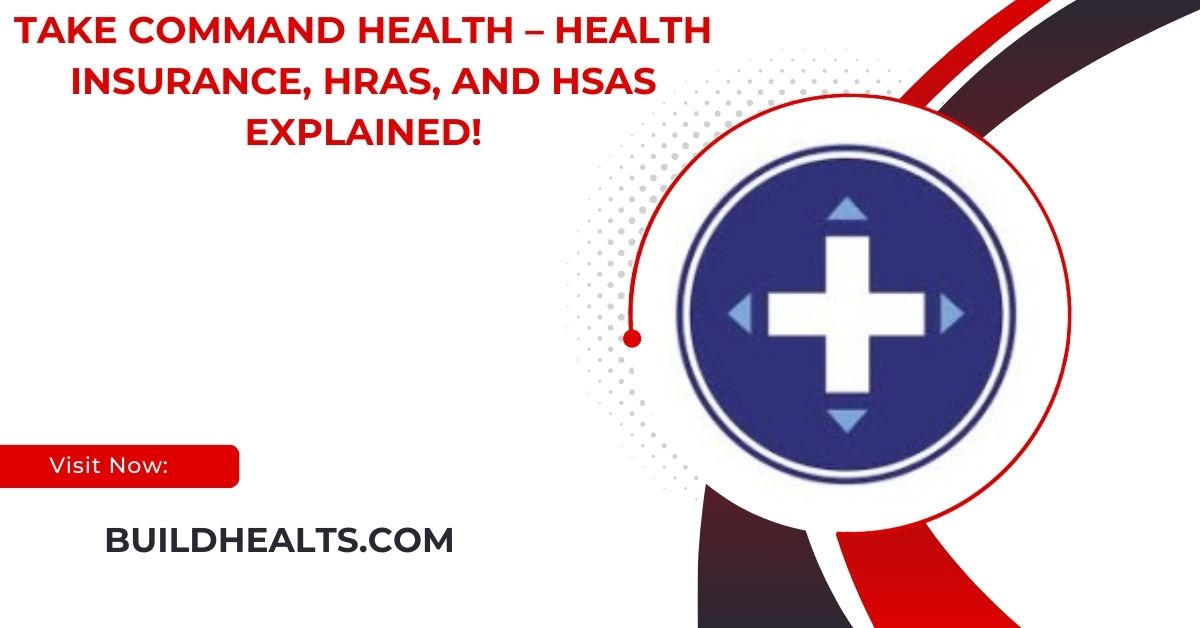Entering the health insurance business provides valuable career opportunities in a growing field. Success requires relevant education, licenses, experience, networking, specialization, and staying updated on industry trends.
This article will guide you through the steps to enter the health insurance sector, covering the necessary education, skills, and career paths available.
What is Health Insurance?

Health insurance is a type of coverage that helps pay for medical and surgical costs incurred by the insured individual. It can also provide coverage for other types of health-related costs, such as prescription drugs, preventive care, and mental health services. The primary goal of health insurance is to reduce the financial burden of healthcare on individuals and families.
Types of Health Insurance Plans:
- Individual Health Insurance: These are policies purchased directly by individuals for their personal coverage. They are ideal for self-employed individuals or those without employer-sponsored insurance.
- Group Health Insurance: Provided through employers or organizations, this type often comes at a lower cost due to shared risk among the group members.
- Medicare and Medicaid: Government programs that provide health coverage to specific populations, including seniors, low-income families, and individuals with disabilities.
- Short-term and Supplemental Insurance: Plans that provide temporary coverage or fill gaps in existing insurance. Short-term plans are typically used when transitioning between jobs, while supplemental plans can cover services not included in primary insurance.
Benefits of Choosing a Career in Health Insurance:
Choosing a career in health insurance offers several benefits:
- Job Stability: The healthcare industry is consistently growing, leading to a high demand for health insurance professionals. The aging population and increasing healthcare needs ensure continued demand for insurance services.
- Diverse Career Options: There are various roles available, including insurance agents, underwriters, claims adjusters, healthcare consultants, and policy analysts. Each role has unique responsibilities and requirements, catering to different interests and skills.
- Opportunities for Advancement: With experience, you can move into management positions or specialize in areas such as policy development, compliance, or sales. Many companies encourage ongoing education and training, leading to career growth.
- Impact on Community: Working in health insurance allows you to help individuals access necessary healthcare services, improving the overall health of the community. Your work can contribute to healthier populations and enhanced quality of life.
Also read: Can I Health Care Provider Be A Psychaist – A Complete Guide!
Steps to Get into the Health Insurance Business:
Acquire Relevant Education:
- Educational Background: Start by pursuing a degree in health administration, business management, finance, or a related field. This foundational knowledge helps you understand the healthcare system and the insurance landscape.
- Specialized Courses: Consider enrolling in courses specifically focused on health insurance, risk management, or healthcare policy. Many universities offer programs tailored to the health insurance industry, which can enhance your qualifications and marketability.
Obtain Necessary Licenses:
- Research State Requirements: Each state has unique licensing requirements for health insurance agents. Visit your state’s insurance department website to familiarize yourself with these regulations and ensure compliance.
- Complete Pre-Licensing Education: Most states mandate a pre-licensing education course to ensure you have a strong grasp of health insurance principles and practices. This education can cover various topics, including types of health insurance plans, regulations, and ethical standards.
- Pass the Licensing Exam: After finishing your education, you must pass a licensing exam that tests your knowledge of insurance concepts and state-specific regulations. Preparing thoroughly for this exam is crucial, as it’s a key step in becoming a licensed agent.
Gain Experience:
- Start in the Industry: Look for entry-level positions within insurance companies or related organizations. Roles such as insurance agent, customer service representative, or administrative support can provide valuable insights into how the industry operates.
- Internships: Seek out internships at health insurance companies, healthcare organizations, or brokerages. These positions offer practical experience, networking opportunities, and exposure to different facets of health insurance, which can be beneficial for your career development.
Build a Network:
- Networking: Building a professional network is vital in the health insurance industry. Join associations such as the National Association of Health Underwriters (NAHU) or local insurance groups to connect with industry professionals.
- Attend Conferences: Participate in industry conferences, workshops, and seminars. These events provide opportunities to learn from experts, exchange ideas, and forge relationships that can lead to job opportunities or partnerships.
Choose a Niche:
- Specialization: Consider focusing on a particular niche within health insurance, such as individual health plans, Medicare, or employee benefits. Specializing allows you to develop expertise in a specific area, making you more appealing to clients and employers.
- Market Demand: Research market trends to identify which niches have the highest demand. Understanding the needs of your target market can help you tailor your services and strategies accordingly.
Stay Informed:
- Ongoing Education: The health insurance landscape is constantly evolving due to changes in regulations, technology, and consumer preferences. Engage in continuing education opportunities, such as webinars, workshops, and online courses, to stay updated on industry developments.
- Subscribe to Industry Publications: Follow relevant publications, websites, and blogs that cover health insurance trends, policies, and best practices. Keeping informed about the latest news and research will help you maintain a competitive edge in your career.
By following these steps, you can successfully enter the health insurance business, develop your expertise, and build a rewarding career in this vital industry.
Career Advancement in Health Insurance
Career Advancement in Health Insurance:

The health insurance industry is diverse and offers various career paths, including roles in underwriting, claims processing, sales, and policy analysis. Understanding the industry’s dynamics and emerging trends is essential for effective career navigation.
Pursuing Advanced Education:
- Importance of Higher Education: Higher education plays a crucial role in career advancement. Degrees like a Master’s in Health Administration (MHA) or an MBA with a healthcare focus provide essential knowledge and skills for leadership roles.
- Professional Certifications: Obtaining certifications, such as the Certified Health Insurance Associate (CHIA) or Fellow of the Society of Actuaries (FSA), demonstrates expertise and commitment to the field, enhancing your qualifications and marketability.
Gaining Relevant Experience:
- Entry-Level Positions: Starting in roles like claims adjuster or insurance agent allows you to gain foundational experience. This hands-on experience is critical for understanding the operations of health insurance.
- Cross-Functional Roles: Taking on cross-functional roles helps broaden your understanding of the industry. Collaborating with departments like underwriting and sales can provide insights into different facets of health insurance, positioning you for advancement.
Networking and Building Professional Relationships:
- Joining Professional Associations: Engaging with organizations such as the National Association of Health Underwriters (NAHU) expands your professional network. These associations offer resources, training, and opportunities to connect with industry experts.
- Leveraging Social Media: Using platforms like LinkedIn to connect with health insurance professionals is vital. Participating in discussions and engaging with content can help establish your presence in the industry.
Also read: Do You Use Health Insurance For Physical Therapy – A Complete Guide!
Staying Updated with Industry Trends:
- Continuing Education: The health insurance landscape is influenced by regulatory changes and technological advancements. Continuing education through courses and workshops ensures you remain informed about the latest practices and trends.
- Research and Publications: Reading industry publications and research papers keeps you updated on emerging trends and best practices. This knowledge equips you to anticipate changes and adapt your strategies effectively.
Looking for Leadership Roles:
- Developing Leadership Skills: As you gain experience, focus on developing leadership skills such as effective communication and strategic thinking. Taking on team lead roles can showcase your readiness for management positions.
- Mentorship Programs: Seek mentorship from seasoned professionals in the field. Mentors can provide guidance, share insights, and help navigate your career path effectively, making you more equipped for advancement.
FAQ’s
1. What education do I need to start a career in health insurance?
A degree in health administration, business management, finance, or a related field is beneficial, along with specialized courses in health insurance.
2. Are licenses required to work in health insurance?
Yes, most states require health insurance agents to complete pre-licensing education and pass a licensing exam to operate legally.
3. How can I gain experience in the health insurance industry?
Start with entry-level positions, such as customer service representative or insurance agent, and seek internships for practical experience and networking opportunities.
4. What are the career advancement opportunities in health insurance?
Career advancement can occur through higher education, certifications, gaining experience, and moving into management or specialized roles.
5. How can I stay informed about health insurance trends?
Engage in ongoing education through webinars and courses, and subscribe to industry publications and websites to keep up with the latest developments.
Conclusion
In conclusion, entering the health insurance business presents numerous career opportunities in a dynamic industry. By obtaining relevant education, securing necessary licenses, and gaining experience, individuals can carve out a successful path. Staying informed about industry trends and networking with professionals further enhances career prospects and contributes to personal growth within this vital field.




